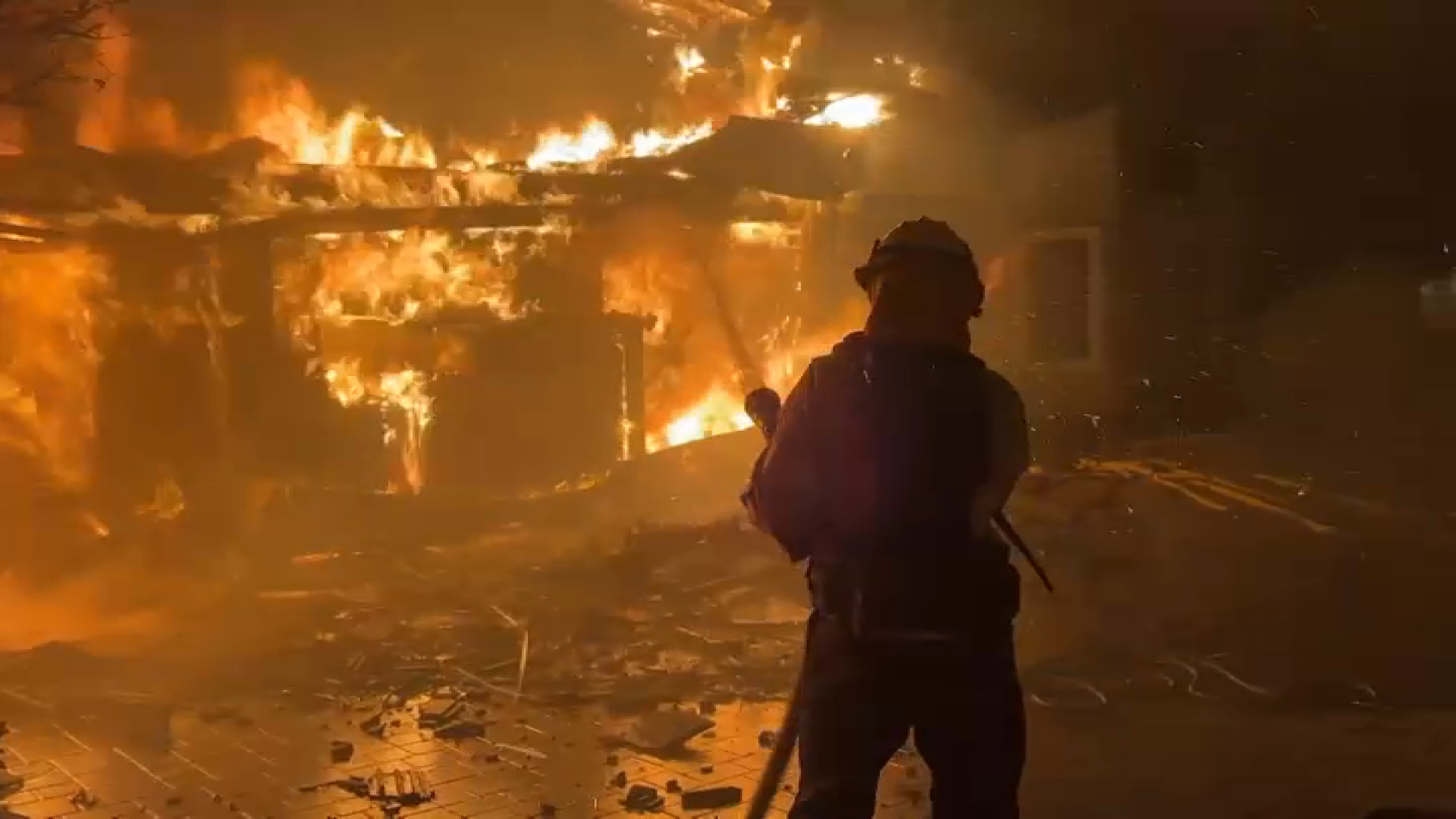NBC 7’s Omari Fleming breaks down where the cuts are going to happen.
San Diego Mayor Kevin Faulconer proposed sweeping budget cuts Wednesday aimed at reducing the impact of a $250 million tax revenue shortfall the city is facing as a result of the COVID-19 pandemic.
The revised budget would eliminate 354 city jobs among San Diego's 11,000-member workforce, cut arts funding in half, and reduce hours at city libraries and recreation centers.
Faulconer said the city would work to help employees affected by the job eliminations.
No sworn-in public safety officers will be let go, but civilian positions within the San Diego Police Department may be cut. Current homeless service funds will also be maintained, according to the mayor. He said $2 million would be injected into the city's Small Business Relief Fund, launched last month to help businesses struggling during the pandemic.
He called it "one of the very few additions'' to the budget.
Other additions include a new fire station scheduled to open for operation this year.
"Our economy is currently at a virtual standstill,'' Faulconer said. "We've never had a month like this, and of course, we've never had a budget like this.''
Local
City Department of Finance Director Matt Vespi said the city is projected to lose $109 million this fiscal year and $145 million in the new fiscal year, which begins July 1.
Vespi said the city is projecting $0 in April TOT revenue, and said the outlook for May is also bleak.
Major losses to hotel/tourism and sales taxes are the major drivers of the $250 million budget gap, which Faulconer's office called the largest deficit in city history. In 2009 during the Great Recession, the city face a $180 million deficit.
In addition to the cuts, a freeze on hiring and all non-personnel expenditures has been instituted.
Janet Poutre, chair of the city's Arts and Culture Commission, said, "The unprecedented loss of tourism funds has been a shock to all of us resulting in a great financial burden,'' but thanked Faulconer "for his work to keep arts funding as whole as possible, given the many pressures on the city budget.''
Hours of operation at recreation centers, which were at their highest in the last decade before the pandemic, will be reduced 25% from 60 hours to 45 hours per week. Eighty-eight jobs could be lost in that department.
Libraries will also switch to Tuesday-Saturday schedules, cutting the two least trafficked days. Also, 96 positions in the libraries department are expected to be cut.
A May revision will be introduced in the coming weeks, featuring potential modifications based on the developing economic effects of COVID-19. Vespi said San Diegans should expect more reduction at that time.
“Every budget is based upon current projections, and in this situation it is a bit hard to project what’s going to come next in terms of our economic situations," the mayor said.
Faulconer said that just weeks ago, the city was benefiting from "one of the strongest economies ever in San Diego,'' but now its leaders must put forth a budget that is a 10% decrease from last year's in order to cover the shortfall.
"COVID-19 has impacted all of us, and city government is no exception. Just like every family right now we have to make difficult choices, but just like every family we are going to do it with care,'' Faulconer said.
"All of us, from our city employees to our city residents, are going to get through this together. This budget is fully balanced and makes responsible decisions today so we can enjoy a better tomorrow. We're going to put the city in the strongest financial position possible to weather this crisis and emerge prosperous and thriving on the other side.''
San Diego Regional Chamber of Commerce President and CEO Jerry Sanders said the financial situation was similar to what the city experienced during the Great Recession, when he was mayor.
"That perspective tells us that the choices being made today to manage unexpected shortfalls are necessary as we move toward recovery and to our future economic viability,'' Sanders said.
City Councilman Scott Sherman said the proposed budget, "though painful, continues to fund vital city services such as public safety and infrastructure while putting the city in a good position to face unknown and dark economic times ahead. I commend Mayor Faulconer and his team for this well thought-out and fiscally responsible budget.''
City Councilman Chris Ward said, "San Diego has faced challenging budgets before. We have met those challenges with realism, but when proposed cuts seemed drastic or unwise, San Diegans got to work, organized and ensured their communities were not left behind. I know we can do the same in the face of this unprecedented crisis, and achieve the balanced budget that serves our city as well as possible.''
The full budget proposal can be viewed here.



